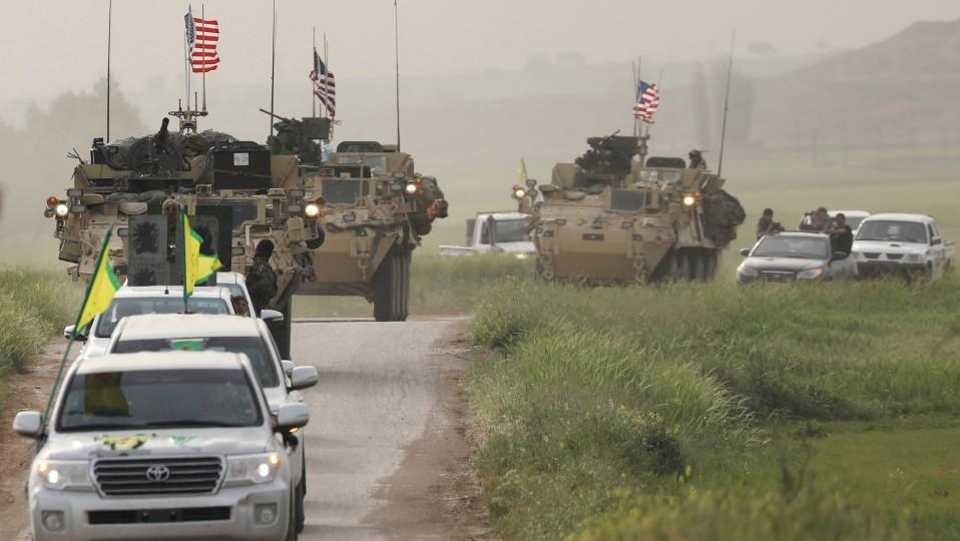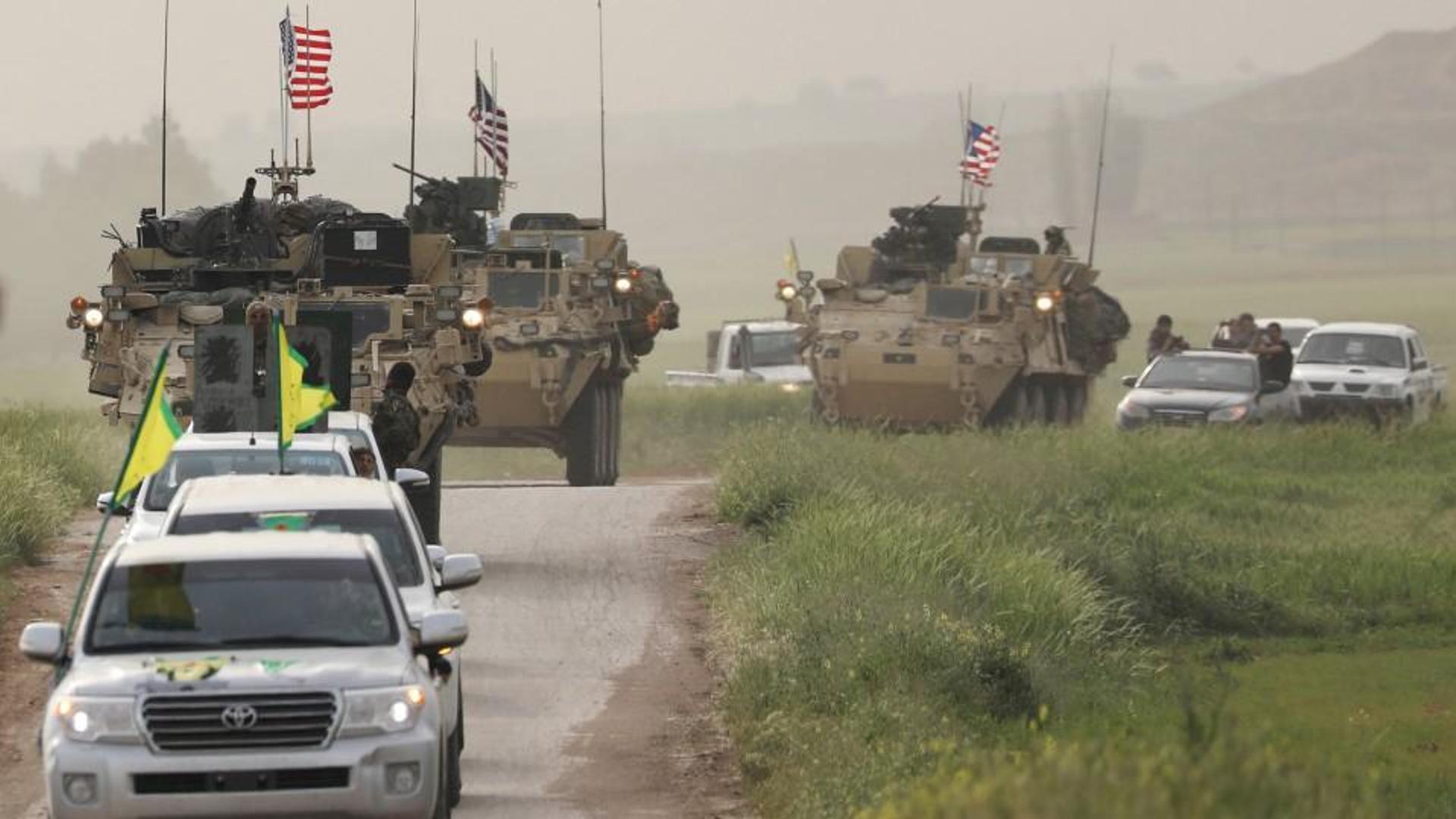
The diplomatic traffic between Turkey and the US has increased following Turkey’s Operation Olive Branch in Afrin, in northern Syria, against the YPG.
US Secretary of State Rex Tillerson is expected to meet Turkey’s Prime Minister Mevlut Cavusoglu and President Recep Tayyip Erdogan to discuss the strained relations between the two countries over US support for the YPG. Cavusoglu stated that Tillerson’s visit will be a turning point in Turkey-US relations, saying “Either we restore our relations, or they will completely break down.”
On the same day, in Brussels, Turkey’s Defence Minister Nurettin Canikli and his US counterpart James Mattis will meet on the sidelines of the NATO Defence Ministers’ meeting.
US support for the YPG will be on the agenda
US support of the YPG in Syria, an offshoot of the PKK, has been a source of tension since 2014 after the US sent military support to the YPG in Kobani. The escalating tensions between Turkey and US reached a climax with Turkey’s operation in Afrin to clear the city of the group.
Turkey has long been calling on the US to cut its support for the YPG in Syria, reminding it that the PKK is a designated terrorist organisation, not only by Turkey, but also by the US, as well the European Union.
The US hasn’t responded to the calls, has kept up its support, and now the YPG controls nearly a quarter of Syria. Most of these areas are home to a majority Arab population, which couldn’t return back to its cities after the fighting ended. Turkey and global right grups have accused the YPG of ethnic cleansing.
US intelligence report reveals the YPG-PKK ties
On February 13, US Intelligence Community released its report on the Worldwide Threat Assessment, where they call the YPG Syrian militia of the PKK:
“Kurdish People’s Protection Unit—the Syrian militia of the Kurdistan Workers’ Party (PKK)—probably will seek some form of autonomy but will face resistance from Russia, Iran, and Turkey.”
Pentagon report reveals problematic relationship
Recently, the Pentagon General Lead Inspector Report to the US Congress has recently been released. The situation in northern Syria is one of the issues that the report discusses.
The report contains ambivalent statements when it describes the status of the YPG, and the US’ continuous support for it, since it is a major threat to Turkey’s national security, US’ NATO ally.
Despite the occasional recognition of the ties between the YPG and the PKK, the report avoids directly calling either the YPG or SDF, a US-made group led by the YPG, as terrorist organisations.
In the report, the PKK is defined as “a US-designated terrorist organisation that has waged a violent insurgency within Turkey’s borders for more than 30 years. Both Turkey and the United States consider the PKK a terrorist organisation.”
It is also acknowledged in the report that the YPG and the political wing of it, PYD, have ties to the PKK and they still enjoy US support:
“Turkey continues to view YPG and PYD dominance of the military and political spheres, respectively, in northern Syria as an existential threat, given the reported ties between the two groups and the PKK.”
“Turkey … remains deeply concerned about the relationship between the US Government and the YPG, given Turkey’s views of the YPG’s links to the PKK. Both Turkey and the United States consider the PKK a terrorist organisation. At the same time, the YPG has the support of the United States and the Coalition.”
And the report gives the example of a PYD official’s comments to show the links: “A PYD official has stated to Russian media that the organization would not disavow the PKK.”
Similarly the connections between the SDF and the PKK are illustrated in the report:
“Following the liberation of Raqqah, some Kurdish fighters within the SDF celebrated victory by raising a banner of jailed PKK leader Abdullah Ocalan, and credited Ocalan for providing the ideological power that enabled them to capture the ISIS [Daesh] stronghold.”
PYD’s anti-democratic rule is a cause for concern
The report accepts Turkey’s concerns over PYD-rule and the Arab-populated areas that it controls after the fight against Daesh:
“The DoS reported continuing concerns about the degree of Kurdish control of the councils and of large areas of Syrian territory in which the Kurds are an ethnic minority.”
And the report recognises that the local councils which the US supports in the region are dominated by the PYD and are not inclusive of the general population. In this respect, the report challenges “the democratic” characteristic of the PYD which is often articulated by the mainstream media and US officials.
“Furthermore, the DoS reported that political freedom was “suppressed” or “limited” in areas of Syria under PYD control and that the PYD used elections to secure its hold in some areas.”
“In areas such as Raqqah, which had a majority conservative, Sunni Arab population, the potential for domination by the Syrian Kurds caused the DoS to stress democratic values to ensure stability and acceptance by the population.”
“However, the PYD appeared to have gained significant political influence over a number of local councils. The US Government supported the councils but also pushed for greater demographic representation and inclusiveness in the makeup of the councils.”
But the US government supports their rule:
“The DoS said it would not support entities controlled by the Democratic Union Party (PYD), the most powerful Kurdish political party in northern Syria, or the YPG, which is the armed wing the PYD.”
US support for the YPG will continue
According to the report, even though US Secretary of Defense Mattis stated that the US will continue to support the SDF without providing weapons in order to prevent a Daesh come-back, “There had been no change in their [YPG’s] relationship with the United States and that changes to weapons deliveries were a consequence of their victories against ISIS [Daesh]”.
This poses another contradiction to the other statement in the report that:
“DoD reported that it acknowledged Turkey’s concerns, calling its fears ‘legitimate,’ and described US military support for the SDF as ‘measured’ and ‘transparent’ to ensure that all parties remained focused on the campaign against ISIS [Daesh].”
A possible Manbij operation increases tensions
Tensions have not ceased between Turkey and the US, since Turkey said it might conduct its next military operation in Manbij. “We will come to Manbij to hand over these territories to their rightful owners,” said President Erdogan last week.
Manbij is another YPG-held territory in Syria, and US soldiers are based in the eastern part of the city as support for the group.
General Jamie Jarrard from US Army special forces, visiting an SDF military outpost in northern Syria on Wednesday, confirmed US intentions to stay in Manbij: “So our senior leadership, Secretary [of State Rex] Tillerson has laid out our end-state for Syria most recently, and so we need to stay here until that political environment is stable and our security here, our presence here provides that level of stabilisation and brings security.”
Two days before Tillerson’s visit, Erdogan responded to the US General, saying “We will destroy every terrorist starting from the ones standing next to them. And then they will understand that it’s better for them to not to stand along with them.”










Discussion about this post